Phytocannabinoids—Evaluation of their therapeutic role in neuroinflammation
Neuroinflammation can be caused by disease, aging, infection, brain injury, toxicity, or stress. It is a contributory factor in the neuropathology of serious conditions that include multiple scleros
[...] Read more.
Neuroinflammation can be caused by disease, aging, infection, brain injury, toxicity, or stress. It is a contributory factor in the neuropathology of serious conditions that include multiple sclerosis (MS), Alzheimer’s disease, Parkinson’s disease, amyotrophic lateral sclerosis (ALS), and autoimmune encephalomyelitis (EAE). The neuroinflammatory response involves the activation of microglia, astrocytes, the endothelial cells of the blood-brain barrier, and peripherally-derived immune cells. The endocannabinoid system is composed of the natural cannabinoids, anandamide and 2-arachidonoyl glycerol (2-AG), enzymes regulating their synthesis/catabolism, and the cannabinoid CB1 and CB2 receptors. It regulates multiple systems in the body including inflammation and endocannabinoid system dysregulation is involved in numerous inflammatory conditions. The Cannabis sativa plant produces over 100 phytocannabinoids, some of which interact with the endocannabinoid system. The major phytocannabinoids are delta-9-tetrahydrocannabinol (delta-9-THC), cannabidiol (CBD), and cannabigerol (CBG). Compelling evidence is emerging that many phytocannabinoids have anti-inflammatory and antioxidant properties. Phytocannabinoids including delta-9-THC, CBD, and CBG bind to a wide variety of targets in the endocannabinoid and/or other systems, which probably accounts for their diversity of effects in non-clinical and clinical studies. The benefits of certain phytocannabinoids have been proven by regulatory approval for medical use of CBD (Epidiolex®), chemically synthesized delta-9-THC (Marinol® and Syndros®) and 1:1 delta-9-THC/CBD (Sativex®). Furthermore, the widely recognized therapeutic properties of Cannabis have been a key driver in legalizing the medical use of Cannabis in 38 USA states. In this review, the potential of phytocannabinoids as effective treatments in neuroinflammatory disorders is discussed based on a critical evaluation of the non-clinical and clinical evidence. We focused on delta-9-THC, CBD, and CBG because they are the most abundant phytocannabinoids in Cannabis sativa and a substantial body of scientific data exists to describe their respective pharmacological mechanisms.
Sharon Smith ... David Heal
View:1073
Download:56
Times Cited: 0
Neuroinflammation can be caused by disease, aging, infection, brain injury, toxicity, or stress. It is a contributory factor in the neuropathology of serious conditions that include multiple sclerosis (MS), Alzheimer’s disease, Parkinson’s disease, amyotrophic lateral sclerosis (ALS), and autoimmune encephalomyelitis (EAE). The neuroinflammatory response involves the activation of microglia, astrocytes, the endothelial cells of the blood-brain barrier, and peripherally-derived immune cells. The endocannabinoid system is composed of the natural cannabinoids, anandamide and 2-arachidonoyl glycerol (2-AG), enzymes regulating their synthesis/catabolism, and the cannabinoid CB1 and CB2 receptors. It regulates multiple systems in the body including inflammation and endocannabinoid system dysregulation is involved in numerous inflammatory conditions. The Cannabis sativa plant produces over 100 phytocannabinoids, some of which interact with the endocannabinoid system. The major phytocannabinoids are delta-9-tetrahydrocannabinol (delta-9-THC), cannabidiol (CBD), and cannabigerol (CBG). Compelling evidence is emerging that many phytocannabinoids have anti-inflammatory and antioxidant properties. Phytocannabinoids including delta-9-THC, CBD, and CBG bind to a wide variety of targets in the endocannabinoid and/or other systems, which probably accounts for their diversity of effects in non-clinical and clinical studies. The benefits of certain phytocannabinoids have been proven by regulatory approval for medical use of CBD (Epidiolex®), chemically synthesized delta-9-THC (Marinol® and Syndros®) and 1:1 delta-9-THC/CBD (Sativex®). Furthermore, the widely recognized therapeutic properties of Cannabis have been a key driver in legalizing the medical use of Cannabis in 38 USA states. In this review, the potential of phytocannabinoids as effective treatments in neuroinflammatory disorders is discussed based on a critical evaluation of the non-clinical and clinical evidence. We focused on delta-9-THC, CBD, and CBG because they are the most abundant phytocannabinoids in Cannabis sativa and a substantial body of scientific data exists to describe their respective pharmacological mechanisms.
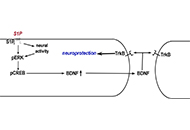 Lysophospholipid receptors in neurodegeneration and neuroprotectionOpen AccessReviewThe central nervous system (CNS) is one of the most complex physiological systems, and treatment of CNS disorders represents an area of major medical need. One critical aspect of the CNS is its lack [...] Read more.Eric BirgbauerPublished: August 22, 2024 Explor Neuroprot Ther. 2024;4:349–365
Lysophospholipid receptors in neurodegeneration and neuroprotectionOpen AccessReviewThe central nervous system (CNS) is one of the most complex physiological systems, and treatment of CNS disorders represents an area of major medical need. One critical aspect of the CNS is its lack [...] Read more.Eric BirgbauerPublished: August 22, 2024 Explor Neuroprot Ther. 2024;4:349–365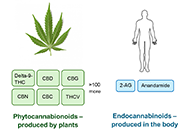 Phytocannabinoids—Evaluation of their therapeutic role in neuroinflammationOpen AccessReviewNeuroinflammation can be caused by disease, aging, infection, brain injury, toxicity, or stress. It is a contributory factor in the neuropathology of serious conditions that include multiple scleros [...] Read more.Sharon Smith ... David HealPublished: August 22, 2024 Explor Neuroprot Ther. 2024;4:325–348
Phytocannabinoids—Evaluation of their therapeutic role in neuroinflammationOpen AccessReviewNeuroinflammation can be caused by disease, aging, infection, brain injury, toxicity, or stress. It is a contributory factor in the neuropathology of serious conditions that include multiple scleros [...] Read more.Sharon Smith ... David HealPublished: August 22, 2024 Explor Neuroprot Ther. 2024;4:325–348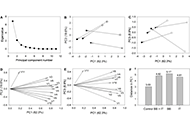 Quantitative analysis of the effects of acoustic neurostimulation on the neuropsychology of healthy adultsOpen AccessLetter to the EditorTo quantitatively analyze the effects of acoustic neurostimulation on the symptoms of depression, anxiety, stress, and sleep quality in healthy workers. Eleven physiological and psychological variab [...] Read more.Radiance C. Bouldin ... Jonghoon KangPublished: August 21, 2024 Explor Neuroprot Ther. 2024;4:319–324
Quantitative analysis of the effects of acoustic neurostimulation on the neuropsychology of healthy adultsOpen AccessLetter to the EditorTo quantitatively analyze the effects of acoustic neurostimulation on the symptoms of depression, anxiety, stress, and sleep quality in healthy workers. Eleven physiological and psychological variab [...] Read more.Radiance C. Bouldin ... Jonghoon KangPublished: August 21, 2024 Explor Neuroprot Ther. 2024;4:319–324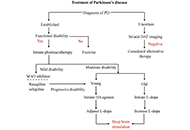 An overview of the role of monoamine oxidase-B in Parkinson’s disease: implications for neurodegeneration and therapyOpen AccessReviewParkinson’s disease (PD) is a neurodegenerative disorder characterized by both non-motor and motor symptoms, due to the loss of dopamine-producing neurons in the brain. Monoamine oxidase-B (MAO-B) [...] Read more.Praveen Kumar Chandra Sekar ... Ramakrishnan VeerabathiranPublished: July 14, 2024 Explor Neuroprot Ther. 2024;4:308–318
An overview of the role of monoamine oxidase-B in Parkinson’s disease: implications for neurodegeneration and therapyOpen AccessReviewParkinson’s disease (PD) is a neurodegenerative disorder characterized by both non-motor and motor symptoms, due to the loss of dopamine-producing neurons in the brain. Monoamine oxidase-B (MAO-B) [...] Read more.Praveen Kumar Chandra Sekar ... Ramakrishnan VeerabathiranPublished: July 14, 2024 Explor Neuroprot Ther. 2024;4:308–318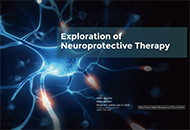 Vitactions: vitamins for the brainOpen AccessPerspectiveA novel concept has been recently put forward in the mind/body interface (https://doi.org/10.37349/ent.2024.00074). The new concept has led to a new word: vitaction. Vitactions [...] Read more.Rafael FrancoPublished: July 01, 2024 Explor Neuroprot Ther. 2024;4:300–307
Vitactions: vitamins for the brainOpen AccessPerspectiveA novel concept has been recently put forward in the mind/body interface (https://doi.org/10.37349/ent.2024.00074). The new concept has led to a new word: vitaction. Vitactions [...] Read more.Rafael FrancoPublished: July 01, 2024 Explor Neuroprot Ther. 2024;4:300–307